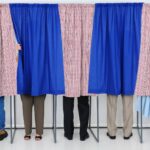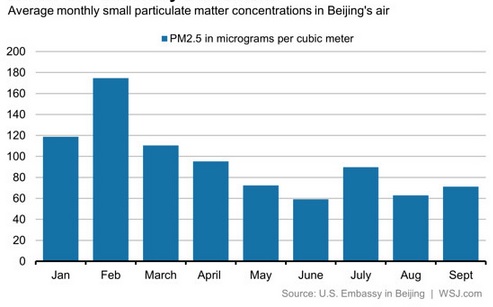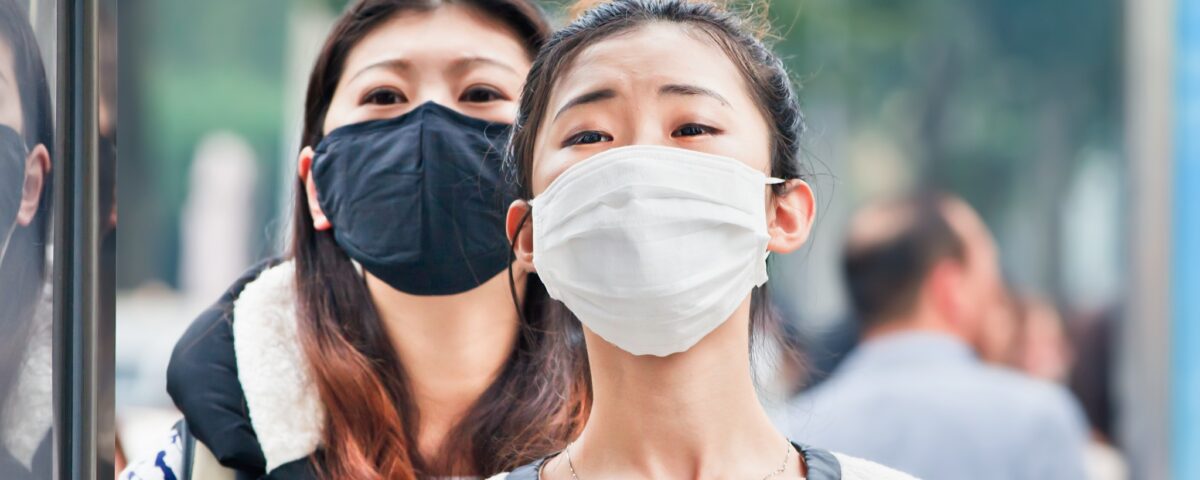
The Difference That a Sticker Makes
November 10, 2014
Dodd-Frank: When Is A Law Too Long To Obey?
November 12, 2014With world leaders gathered this week for the Asia-Pacific Economic Cooperation Forum, China wants to temporarily cut Beijing’s air pollution by 40 percent. Looking at the list of prohibitions, you can see why people are irritated.
Pollution Prohibtions
The stone beds (called kangs) in Fangezhuang, a chilly mountainous village north of Beijing, cannot be warmed because of a wood and charcoal briquettes ban. At cemeteries, mourners have to forego the floral wreathe burning that honors their dead ancestors. During weddings, the traditional use of firecrackers has to stop. Meanwhile, the number of cars on the road in 17 nearby cities is limited by odd/even license plate driving days and in Beijing, delivery trucks carrying goods ranging from milk to furniture can enter for just three hours in the middle of the night.
Responding to the cutbacks, one resident said, it was an “overreaction.“ Another complained that, “Commuting to work will be such a pain without my car…” And of course, individual business people were angry because of fewer customers and less to sell as they absorb a hit on the demand and supply sides.
Where are we going? To how tough it is to cut individual pollution.
When you look at news articles, China’s growing electricity generation, her massive use of coal, and her heavy industry are cited as air pollution causes. Yes, the highest emissions come from industry—but individuals contribute. Above, we refer to kangs, burnt offerings, wedding fireworks and commuting. If you look at the graph below, Beijing’s small particulate spike in February was because of Lunar New Year fireworks.

With the World Health Organization citing 25 as a healthy level, Beijing’s lowest small particulate numbers are not close.
Our Bottom Line: A Tragedy of the Commons
This is where the tragedy of the commons enters the picture. Pollution from each of us is tough to reduce because we share the air. Whether looking at an overgrazed pasture, a messy office refrigerator or air pollution, people have the incentive to abuse publicly shared resources. Privately benefiting from our behavior, we tend to ignore the impact of everyone using the resource together. The result is a tragedy of the commons.
![econlifelogotrademarkedwebsitelogo[1]](/wp-content/uploads/2024/05/econlifelogotrademarkedwebsitelogo1.png#100878)



